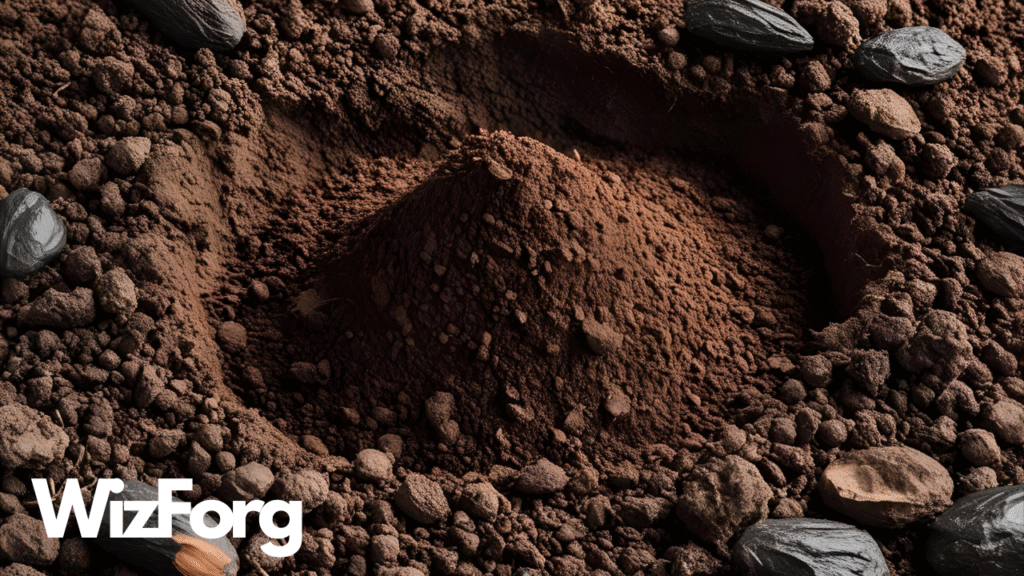It might seem harmless to take a little jar of soil home from your travels—maybe from a famous vineyard, a historic battlefield, or even a family’s ancestral land. But in many countries, exporting soil is strictly prohibited. And it’s not just about protecting the ground. Soil carries more than just memories—it carries life, risk, and sometimes, hidden danger.
Soil Isn’t Just Dirt—It’s a Living System
To most people, soil appears as a lifeless, brown powder. But biologically speaking, it’s alive. A single teaspoon can contain billions of microorganisms—bacteria, fungi, viruses, and microscopic insects. This rich biodiversity makes soil incredibly valuable, but in some cases, it can also be hazardous when moved across borders.
That’s why many countries treat soil like a biohazard when it comes to international travel.
Biosecurity Risks: Bugs, Disease, and Invasive Species
One of the primary reasons soil exports are banned or restricted is due to biosecurity concerns. Soil can harbor pests or plant diseases that may not exist in the destination country. If introduced, these organisms can devastate local agriculture, forestry, and ecosystems.
For example, transporting soil that contains spores of Phytophthora, a water mold, could lead to a tree disease outbreak. Alternatively, you could unknowingly introduce invasive ant or beetle species that attack crops.
That tiny clump of earth in your shoe? It might contain more threats than you’d ever imagine.
Agricultural Protection
Some regions have extremely delicate crops and natural systems that are easily disrupted by foreign pathogens. Countries like Australia and New Zealand have famously strict customs laws regarding soil, seeds, and plant material. Even the dirt on your hiking boots can trigger fines or cleaning requirements at airports.
Their approach may seem extreme, but it has helped preserve native species and prevent costly agricultural disasters.
Cultural and National Heritage
In some places, soil isn’t just functional—it’s sacred. Certain indigenous communities and heritage groups consider the land and its materials spiritually or historically significant. Exporting soil from these regions is considered not only illegal but culturally offensive.
For example, some volcanic islands or historic battlefields are protected as national heritage sites. Taking even a pinch of soil might violate preservation laws, similar to removing stones from ancient ruins or coral from protected reefs.
Military and Political Restrictions
In rare cases, exporting soil is restricted for political or military reasons. Soil samples can be used in geological analysis to study mineral resources, identify potential oil or gas reserves, or assess the suitability of military terrain. That’s why some nations block soil exports from border areas or strategic regions—they don’t want foreign analysts getting access to their geological data.
Yes, even soil can be considered sensitive national intelligence.
It’s Easy to Break the Rules by Accident
Most travelers don’t know that carrying a bit of soil—whether on boots, in plant pots, or even decorative souvenirs—can be a customs violation. Some airports have signs and warnings, but many don’t. If you’re caught with prohibited material, you might face fines, confiscation, or delays. In serious cases, especially those involving commercial exports, criminal charges may be applicable.
So if you’re thinking of scooping up a handful of earth for “just a souvenir,” it’s worth doing your research first.
Final Thoughts
Soil seems simple, but it’s a global resource with complex implications. From pests to politics, exporting dirt isn’t as harmless as it seems. That patch of land may be rich in meaning, but it’s also rich in microbes and regulations.
Curious about strange travel rules and surprising global laws? Visit Wizforg.com and subscribe to our YouTube channel for more smart stories that dig deeper than the surface.



